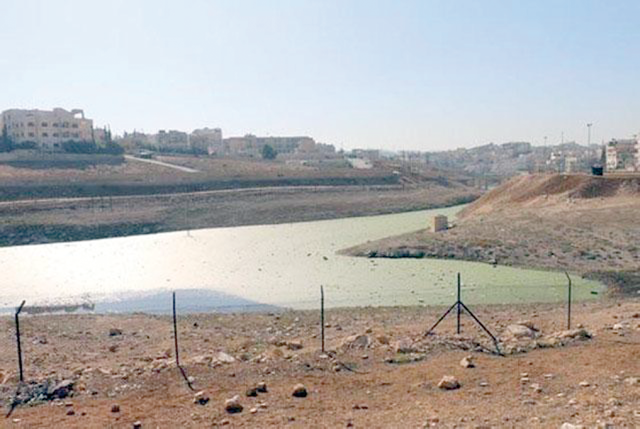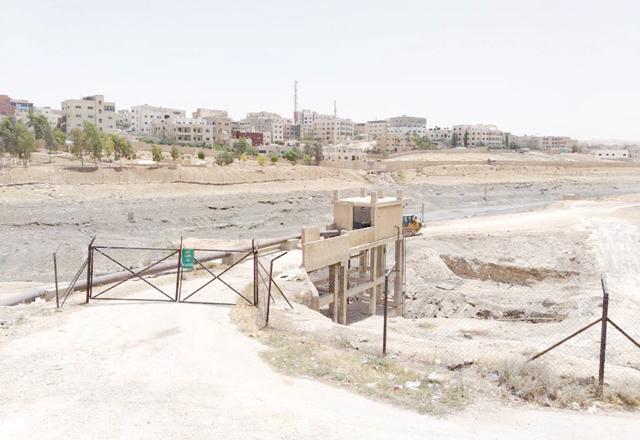You are here
GAM says first phase of revamping 'Pepsi pool' completed
By JT - Oct 29,2023 - Last updated at Oct 29,2023

The Greater Amman Municipality (GAM) says on Sunday that it has completed the first phase of revamping the 'Pepsi pool' in Russeifa (JT file)
AMMAN — The Greater Amman Municipality (GAM) has completed the first phase of revamping the so called "Pepsi pool" in Russeifa in the eastern city of Zarqa.
The infamous “Pepsi Pool”, a cesspit which sits in the heart of a populated and industrialised area east of Russeifa, is known to be highly contaminated with industrial and domestic wastewater.
After completing this phase, which started in mid-August, GAM said it will embark on the second and final phase through installing a pipeline from the deep manhole to the pool, the Jordan News Agency, Petra, reported.
Constructions include installing a pipeline of 1,400 metres long and a diameter of 2,400 millimetres with the use of the tunnel boring machine, which is used for the first time in the Kingdom to overcome challenges related to the depth of the course of the pipelines.
The cost of the project stands at about JD12 million that was secured from a grant and loan from the European Bank for Reconstruction and Development.
The Pepsi pool, which acquired its name due to its proximity to the Pepsi Company and the fact that the company used to dispose of its discharged operations water into the pool, has been a source of health and environment pollution for area residents over the past three decades.
It is located on a 200 dunnum tract of land that is owned by the GAM, but, the pool’s surface stretches over 33 dunnums.
Residents of the area around the “Pepsi Pool” suffer from foul odours, mosquitoes and insects due to the stagnant water in the pool, which has accumulated as a result of sewage, household connections, water leaking from factories and rainwater.
Industrial dumping, mainly by the mineral and soft drink industries, and wastewater leaked from residential areas created a dangerous situation. During winter, rainfall would often cause the pit to overflow into the surrounding residential area, increasing the hazard to citizens and workers.
Related Articles
AMMAN — The technical committee tasked with putting forward proposals for addressing the environment and health pollution caused by Rusaifeh
AMMAN — Prime Minister Omar Razzaz on Tuesday pledged to find a solution that can put an end to the environmental problems caused by the ces
AMMAN — The caretaker government on Monday expressed keenness to rehabilitate the "Pepsi Pool" in Russeifa and turn it into parks and recrea












